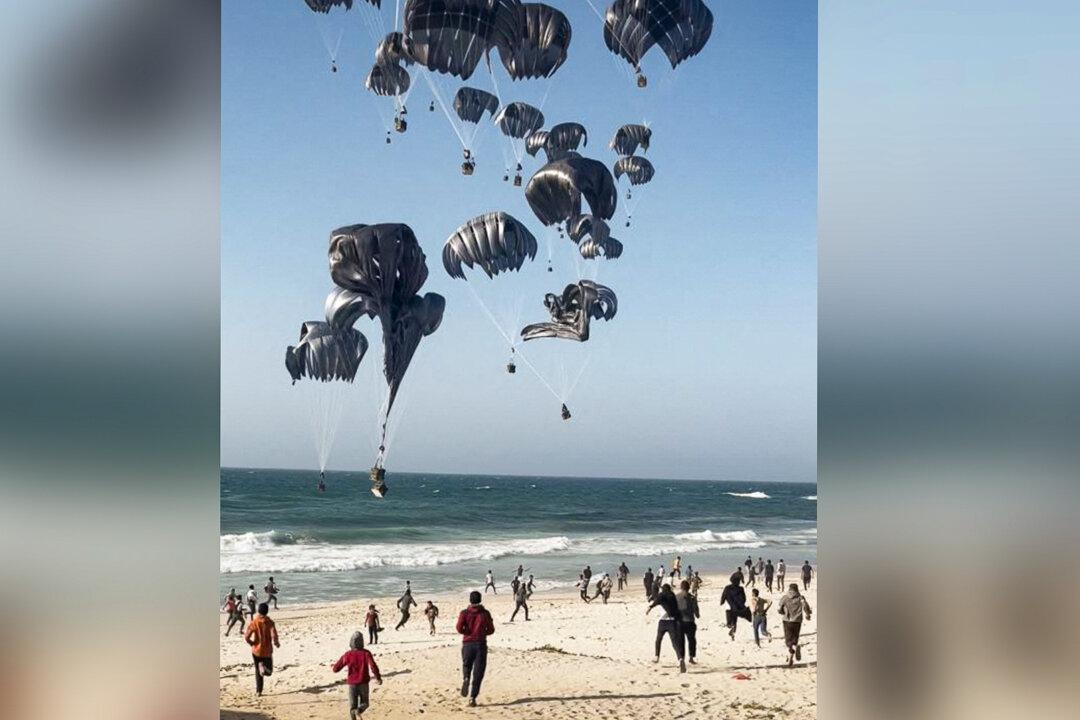The U.S. military on March 2 began dropping meal bundles over the Gaza Strip, the besieged enclave where supply trucks have been overwhelmed and looted.
Three C-130 cargo planes dropped a total of 66 pallets containing about 38,000 ready-to-eat meals over Gaza, in the first of many upcoming rounds of emergency humanitarian aid authorized by President Joe Biden, a senior administration official said in a press call on the morning of March 2.





